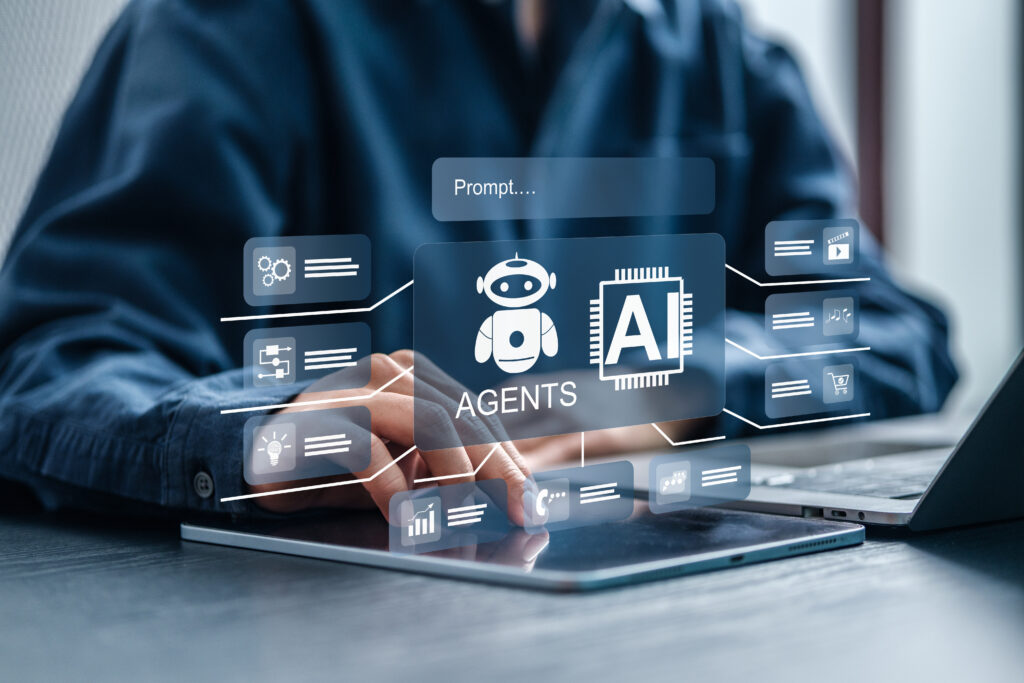Artificial intelligence (AI) is actively reshaping work in today’s enterprise. Its evolution is driving a significant cultural shift towards AI-augmented working, which promises substantial changes in the daily activities of the workforce. For organizations utilizing ERP systems, understanding how to integrate AI effectively is paramount for leveraging its potential for tangible business value.
Strategic partners like Codestone provide essential guidance by offering a structured approach to embedding AI into an organization’s operations and culture.
A Phased Deployment for AI Integration
Codestone has developed a structured, three-phase deployment plan centered on Microsoft Copilot AI. It is designed to guide organizations from initial exploration to full-scale AI integration and optimization.
Phase 1 – Discover: This initial phase explores how Microsoft Copilot AI can be strategically implemented within an organization. It includes:
- Workshops that include demonstrations of Microsoft 365 Copilot, Copilot Agents, and Copilot Studio for a practical understanding of AI’s capabilities.
- Collaborative discussions on AI opportunities across various departments such as HR, Legal, IT, and Finance.
- Establishing proper governance, with guidance on forming an AI Council to oversee AI strategy and develop a compelling internal business case.
- Proof of Concept (PoC) implementations with ready-to-use templates, hands-on training, and structured feedback sessions help validate AI’s potential.
- A Champion User Program that provides select employees with early access to Copilot in Microsoft 365 to maximize immediate productivity benefits.
A copilot agent is also deployed to showcase AI’s impact on business systems and workflows. The phase concludes with tailored user training to drive adoption and a detailed PoC success report assessing outcomes and recommending next steps.
Phase 2 – Establish: This phase focuses on expanding AI integration, establishing long-term governance structures, and ensuring the organization is AI-ready at scale:
- PoC findings inform broader AI deployment across departments, and two additional Copilot Agents are deployed to automate more workflows and enhance system efficiency.
- A formal AI Centre of Excellence (CoE) or AI Council is established to drive best practices and policy adherence for AI governance.
- Support is provided for business case development, including ROI assessments and strategic planning for AI investments.
- User deployment and training are extended to more employees for organization-wide AI literacy.
Data infrastructure, compliance needs, and AI policies are also assessed to facilitate a smooth transition to full adoption.
Phase 3 – Grow: With embedded AI, this phase concentrates on scaling, optimizing, and innovating with Microsoft Copilot AI to unlock new growth opportunities. This involves:
- Broadening Copilot AI capabilities across all teams, systems, and processes.
- Custom AI Agent and Copilot Studio development to address complex, specific business needs with tailored AI solutions.
- Ongoing support for AI Council leadership to ensure responsible AI scaling.
- Continuous monitoring, performance enhancements, AI-driven workflow improvements, and advanced reporting with Power BI to measure and optimize AI’s impact.
- Expertise in Copilot Studio to enhance AI automation and system integration.
AI as an Augmentation Tool
AI is generally viewed as a tool to augment human creativity and critical thinking capabilities. Success in an AI-driven environment will depend on an organization’s ability to effectively guide AI tools, validate their outputs, and interpret the insights they generate, rather than merely executing routine tasks.
Codestone supports this transition through tailored training programs and workshops on AI literacy, critical thinking, creativity, and user adoption. It also assists organizations in deploying AI Agents to demonstrate their direct impact on business systems and operational workflows.
The AI Centre of Excellence (CoE)
Effective AI adoption at scale necessitates robust governance structures, often embodied in an AI Centre of Excellence (CoE) or an AI Council. This central body is essential for aligning AI initiatives with overarching business objectives. It ensures compliance with regulatory and ethical standards, fosters best practices, supports employee upskilling, mitigates potential risks, and drives a competitive advantage. Codestone provides expertise and support in establishing and leading this governance framework.
What This Means for ERP Insiders
Enhance accessibility and utilization of advanced functionality. The democratization of advanced capabilities can empower more users to leverage the full power of the ERP system. Identify powerful ERP functionalities that are underutilized due to their complexity or the specialized knowledge required to operate them. Then consider how AI-driven assistants or Copilot-like interfaces could help lower these barriers. This approach helps maximize the return on your ERP investment by enabling more employees to perform at a higher level, with expert support from partners like Codestone for developing tailored solutions.
Utilize AI to automate routine tasks and workflows. This allows the workforce to focus on strategic, analytical, and high-value activities. Begin by identifying high-volume, rule-based tasks within your ERP system that are candidates for automation. Exploring a Proof of Concept for such scenarios can also be a practical starting point.
Augment ERP data with AI to generate deeper insights. This capability allows businesses to move from reactive reporting to proactive and even predictive analytics. For instance, AI can identify subtle patterns indicating potential supply chain disruptions or help understand customer behavior to personalize offerings. Discuss how AI-driven analytics applied to your ERP data can be integrated into your overall business strategy, potentially during initial AI workshops.



